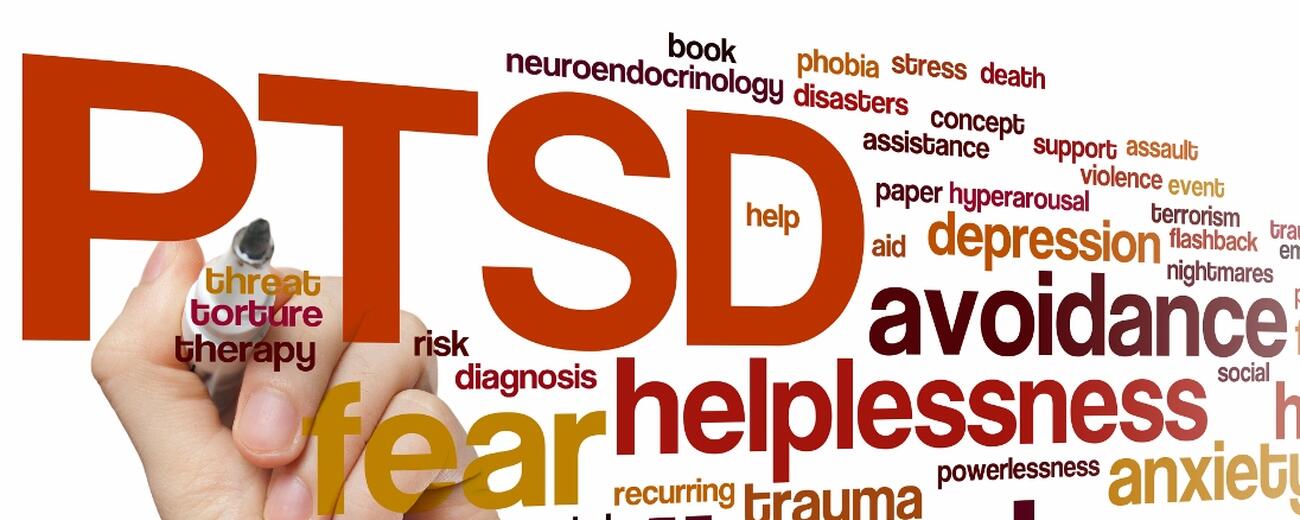How can therapy help me?
A number of benefits are available from participating in therapy. Therapists can provide support, problem-solving skills, and enhanced coping strategies for issues such as depression, anxiety, relationship troubles, unresolved childhood issues, grief, stress management, body image issues and creative blocks. Many people also find that counselors can be a tremendous asset to managing personal growth, interpersonal relationships, family concerns, marriage issues, and the hassles of daily life. Therapists can provide a fresh perspective on a difficult problem or point you in the direction of a solution. The benefits you obtain from therapy depend on how well you use the process and put into practice what you learn. Some of the benefits available from therapy include:
- Attaining a better understanding of yourself, your goals and values
- Developing skills for improving your relationships
- Finding resolution to the issues or concerns that led you to seek therapy
- Learning new ways to cope with stress and anxiety
- Managing anger, grief, depression, and other emotional pressures
- Improving communications and listening skills
- Changing old behavior patterns and developing new ones
- Discovering new ways to solve problems in your family or marriage
- Improving your self-esteem and boosting self-confidence
Do I really need therapy? I can usually handle my problems.
Everyone goes through challenging situations in life, and while you may have successfully navigated through other difficulties you've faced, there's nothing wrong with seeking out extra support when you need it. In fact, therapy is for people who have enough self-awareness to realize they need a helping hand, and that is something to be admired. You are taking responsibility by accepting where you're at in life and making a commitment to change the situation by seeking therapy. Therapy provides long-lasting benefits and support, giving you the tools you need to avoid triggers, re-direct damaging patterns, and overcome whatever challenges you face.
Why do people go to therapy and how do I know if it is right for me?
People have many different motivations for coming to psychotherapy. Some may be going through a major life transition (unemployment, divorce, new job, etc.), or are not handling stressful circumstances well. Some people need assistance managing a range of other issues such as low self-esteem, depression, anxiety, addictions, relationship problems, spiritual conflicts and creative blocks. Therapy can help provide some much needed encouragement and help with skills to get them through these periods. Others may be at a point where they are ready to learn more about themselves or want to be more effective with their goals in life. In short, people seeking psychotherapy are ready to meet the challenges in their lives and ready to make changes in their lives.
What is therapy like?
Because each person has different issues and goals for therapy, therapy will be different depending on the individual. In general, you can expect to discuss the current events happening in your life, your personal history relevant to your issue, and report progress (or any new insights gained) from the previous therapy session. Depending on your specific needs, therapy can be short-term, for a specific issue, or longer-term, to deal with more difficult patterns or your desire for more personal development. Either way, it is most common to schedule regular sessions with your therapist (usually weekly).
It is important to understand that you will get more results from therapy if you actively participate in the process. The ultimate purpose of therapy is to help you bring what you learn in session back into your life. Therefore, beyond the work you do in therapy sessions, your therapist may suggest some things you can do outside of therapy to support your process - such as reading a pertinent book, journaling on specific topics, noting particular behaviors or taking action on your goals. People seeking psychotherapy are ready to make positive changes in their lives, are open to new perspectives and take responsibility for their lives.
What about medication vs. psychotherapy?
It is well established that the long-term solution to mental and emotional problems and the pain they cause cannot be solved solely by medication. Instead of just treating the symptom, therapy addresses the cause of our distress and the behavior patterns that curb our progress. You can best achieve sustainable growth and a greater sense of well-being with an integrative approach to wellness. Working with your medical doctor you can determine what's best for you, and in some cases a combination of medication and therapy is the right course of action.
What services do you provide for Elder Counseling?
The Family Relationship Center offers elder counseling as part of in-office sessions within our League City office or our therapists can come to a clients' Assisted Living or Independent Living facility and provide in-home sessions. The in-home sessions would be private pay per 1/2 or full hour.
The Family Relationship Center offers Online Live Text Based Psychotherapy? What is Text Based Psychotherapy?
You and your therapist will get a dedicated "room", which will be your private and secure place to communicate. This room will be open during your dedicated session. You can enter the room from any Internet-connected device wherever your are. In this room, you will write about yourself, the things going on in your life, ask questions and discuss the issues that trouble you. Your therapist will login to the same room, communicating with you providing feedback, insights, and guidance during your session. Your therapist will help you learn about the issues that hold you back and prepare you to move forward. This ongoing one-on-one dialog is the basis of your work with your therapist. Together you will build towards making a positive change in your life and accomplishing your goals.
The Family Relationship Center offers Online Live VIDEO Psychotherapy? What is VIDEO Psychotherapy?
We offer the option to our clients to have psychotherapy sessions online in either a video format or through text. It is not uncommon for us to have a fully online therapy relationship where we get to come along for the ride as our clients travel outside the office, get stuck at work, move abroad, or simply get sick (we've definitely condicted a session or two when our clients are in bed with the flu but still want to have a session).
Due to licensing restrictions, our therapists are able to offer therapy online to people living in Texas or in other countries. So wherever you are in the world, we can meet you there. We care about meeting you where you are at in all the realness of your life and schedule. Our video sessions are through Thera-Link and are HIPAA Compliant. All data through the internet is secure and encrypted meeting the highest of standards for our client's confidentiality.
What Browsers or Devices can be used for my online video session?
Currently, Thera-LINK supports the following devices and browsers:
PC - Windows 7 (or newer) using Chrome or Firefox
MAC - OS X 10.8 (or newer) using Chrome, Safari, or Firefox
ANDROID - Most newer Android tablets or phones (since 2014) with updated software using Chrome only
iPAD - Download the thera-LINK app from the app store
iPHONE - Download the thera-LINK app from the app store
**WE DO NOT SUPPORT INTERNET EXPLORER OR THE NEW EDGE BROWSER.
Do I need to do anything to prepare for my first online video session?
As a client using the Thera-LINK secure video service, you will need to read, understand, and sign an Video Informed Consent form, located on the Client Forms Tab on the Home Page. You will also need to read the instructions on how to set-up your video session from your end.
Thera-LINK’s video sessions do not require you to download anything if you are using the Chrome browser. However, if you are using Firefox or Safari, you will need to install a plugin and activate it prior to your first session. The plugin is only takes about 45 seconds to download and install and you only have to do this the first time.
If you schedule a video session with the Family Relationship Center, you can click here to automatically download the plugin but be sure you follow all the instructions and install it as well: https://www.thera-LINK.com/welcome-client
What are your rates?
The Family Relationship Center has rates that are comparable to and often lower than other heathcare providers within the community. Our rates are between $90-$155, depending upon whether the session supports an individual, couple, or family. We offer discounted rates for elders and active or retired military.
Do you take insurance?
The Family Relationship Center is an Out-of-Network provider so we do not accept insurance outright, however services can be billed to insurance as an Out-of-Network provider. If you're unsure if you have out-of-network benefits, call your insurance company and ask about whether or not they offer reimbursement for behavioral health, at what percentage, and whether you need to hit a deductible first. We can provide you with the paperwork so that you can file yourself with your insurance company for possible reimbursement, and depending upon your plan, you may or may not have coverage. We can provide the paperwork necessary to you for you to submit your claim for direct reimbursement of your therapy services upon request. Many of our clients are able to file and receive a reimbursement for individual therapy from anywhere between 50-80% of session cost after meeting their deductible. If you plan to file for Out-of-Network reimbursement, please make this clear when scheduling with us.
Why Does The Family Relationship Center NOT take insurance?
“Medical Necessity”
Most people with insurance benefits assume they can use them based merely on their desire to participate in counseling. The reality is that insurance companies require that mental health treatment be “medically necessary”. To be medically necessary, treatment must address a mental disorder. Counseling intended solely for self-improvement or to help cope with normal life stressors is not considered medically necessary by insurance companies.
A Mental Health Diagnosis
Medical necessity is established by psychiatric symptoms being matched to a diagnosis. Insurance companies require that your therapist assign a mental health diagnosis for the patient. To be able to bill insurance, paperwork for counseling includes a release, which allows the insurance company to have access to any and all records including session notes.
Confidentiality & Privacy
Once your insurance company receives information about you from your therapist, there is no way to protect your privacy and confidentiality. The diagnosis and other pertinent information is given by your insurance company to a national Medical Information Database that centralizes information for approximately 700 or more insurance companies. The Medical Information Database was created to alleviate fraud on insurance applications.
The Effects of a Diagnosis
This diagnosis can impact jobs with the government or military, jobs with security clearances, aviation, or any other job requiring health-related checks before hiring an employee.
After receiving a diagnosis, an individual will have to answer yes to any question pertaining to seeking treatment for a psychiatric problem. If you apply for individual health, life, or disability insurance, the mental health diagnosis can increase your rate for coverage and determine if you are rejected from coverage.
Many individuals who have lost their jobs and have to seek private coverage are not able to find an insurance company who will cover them due to their mental health diagnosis. A diagnosis given to a child can impact their future in many ways including being labeled throughout their schooling years and impacting future employment with military, government jobs, or any employment requiring a health-care related check.
Will our therapy sessions remain confidential?
Confidentiality is one of the most important components within our agency. Successful therapy requires a high degree of trust with highly sensitive subject matter that is usually not discussed anywhere but the therapist's office. Every therapist should discuss their confidential disclosure agreement; expecting that what you discuss in session will not be shared with anyone. This is called “Informed Consent”. Sometimes, however, you may want your therapist to share information or give an update to someone on your healthcare team (your Physician, Psychiatrist, or Attorney), but by law your therapist cannot release this information without obtaining your written permission.
However, state law and professional ethics recognize that a therapist can waive confidentiality for the following situations:
* Suspected past or present abuse or neglect of children, adults, and elders to the authorities, including Child Protection and law enforcement, based on information provided by the client or collateral sources.
* If the therapist has reason to suspect a child client is seriously in danger of harming him/herself or has threated to harm another person.
* If the therapist has been subpoenaed by an official court of law
* If the therapist is being sued by the particular client.
What if I have an emergency?
If you are in a life threatening situation, do NOT use this site. Call the National Suicide Prevention Lifeline - a free, 24-hour hotline at 1-800-273-8255. Your call will be routed to the crisis center near you. If your issue is an emergency, call 911 or go to your nearest emergency room.
Couples Counseling Houston Tx, Marriage Counseling Houston Tx, Child Counseling Houston Tx, Couples Therapy Houston Tx, Marriage Therapy Houston Tx, Child Therapy Houston Tx, Online Therapy Houston Tx, Online Counseling Houston Tx























